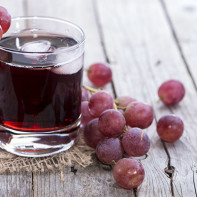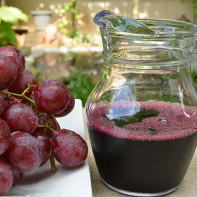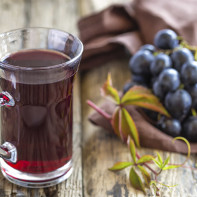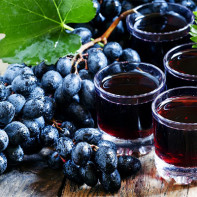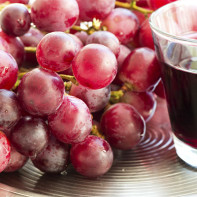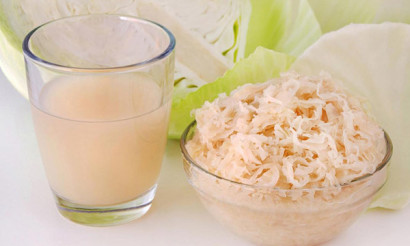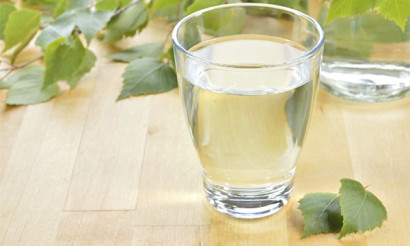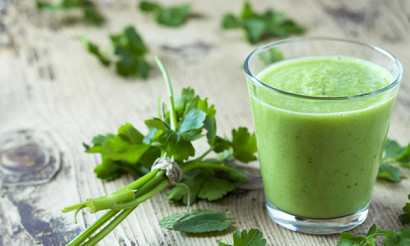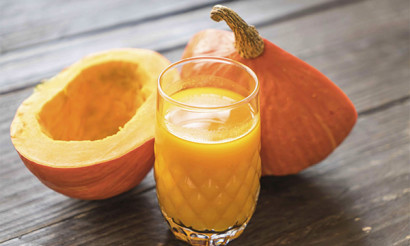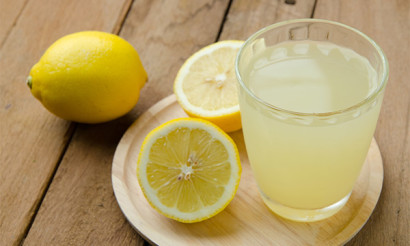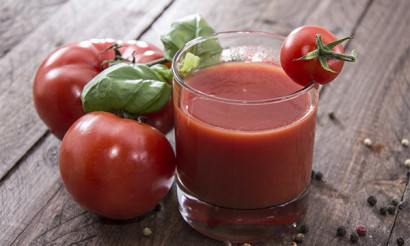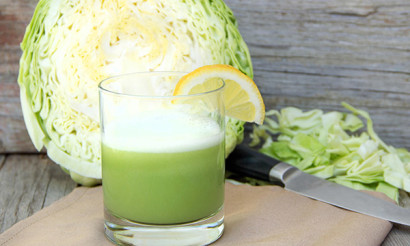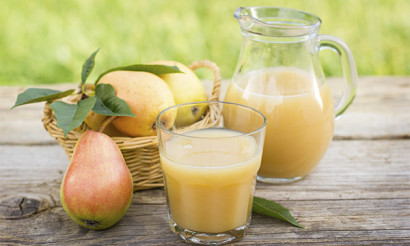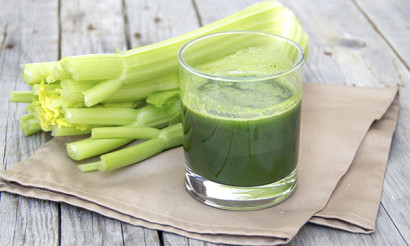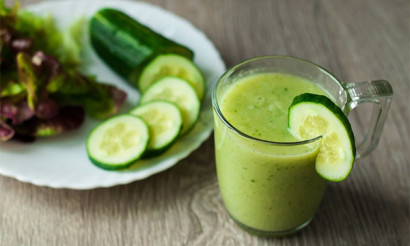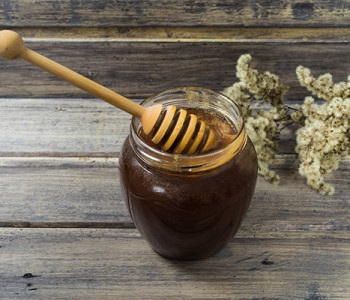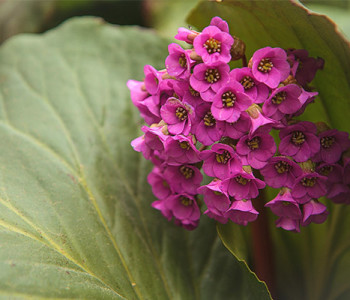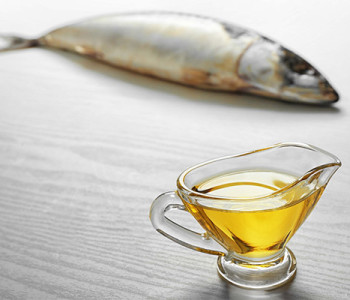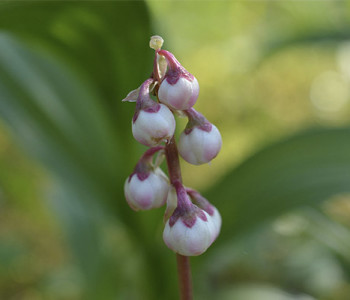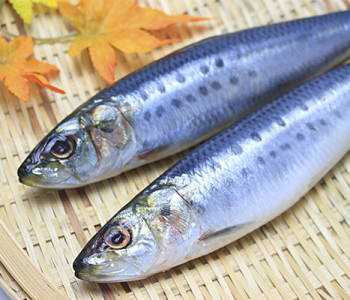Grape juice: benefits and harm to the body
Many people like grape juice. As in the case of apple, you can get different juice in taste and color, using for its preparation a great variety of varieties. It can be sweet or sour, red, pink or white - for every taste.
- Composition and calorie content
- What is grape juice good for?
- General benefit
- For women
- For men
- During pregnancy
- When breastfeeding
- For kids
- When losing weight
- Is packaged grape juice healthy?
- Grape juice in medicine
- The use of grape juice in cosmetology
- Body Scrub
- Hair mask with grape juice and burdock oil
- Hair mask with grape juice and egg
- Harm and contraindications
- How to choose and store grape juice
- How to make grape juice
- How to make wine from grape juice
- Can I drink juice from the vine
- How to color eggs with grape juice
- Interesting facts about grapes
Composition and calorie content
Grape juice has a very complex chemical composition - in it you can find organic acids, vitamins, useful minerals and sugars. All this accumulates not only in the pulp, but also in the skin and bones, so it is important to use the whole berry for juice.
The grape skin contains pectins, essential oils, as well as tannins, which are so valued for problems with the gastrointestinal tract. A large number of phenolic compounds can protect the body from many problems. Grape seeds have long been used for the preparation of oils and medicines that support the work of the cardiovascular system. Bones contain powerful antioxidants - quercetins and catechins. The pulp itself is very rich in vitamin C, K and group B. Dietary fiber also has a beneficial effect on the body, as do minerals - potassium, copper and manganese.
In this case, the calorie content of the juice is low - 100 kcal per 100 g of juice. Due to the inherent sweetness of some types of berries, juice does not require the addition of sugar, which greatly affects the final calorie content of the drink. Honey or mint can be good for your health and taste. Thanks to them, the taste will be refreshing and truly summer.
What is grape juice good for?
General benefit
Studies of grape juice and its benefits for the human body are still being carried out, and each time new medicinal properties are discovered. But it has now been proven that drinking grape juice can help people cope with many problems.
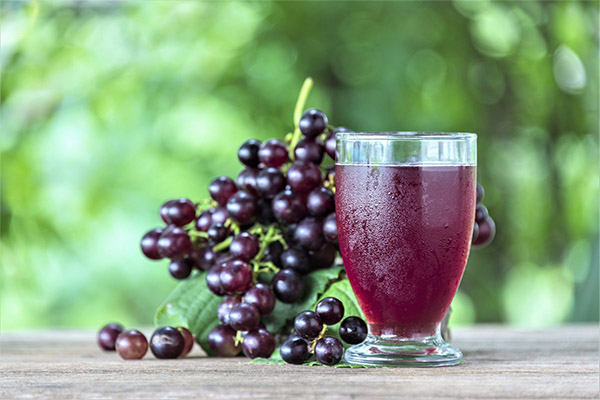
Cancer Risk Reduction
Antioxidants help repair damaged free radical cells. Such radicals are harmful to the body, cause oxidative processes in it, which in the future contribute to the development of cancer. Antioxidants block these radicals and stop oxidative processes that have already arisen. It also reduces the risk of diabetes and cardiovascular disease.
The largest amount of antioxidants is found in the bones and skin, so they must be used when cooking - just do not peel the grapes from them. Especially a lot of them in red varieties.
Resveratrol, a phenolic compound that is a prophylactic against cancer, has a special effect on cancer cells. The principle of action is the same as that of antioxidants - it blocks free radicals. To help him, he should highlight catechins and quartzetine - flavonoids that have antioxidant properties.
Benefits for the heart and blood vessels
A high potassium content will help maintain a normal level of blood pressure, and this trace element in grape juice is 6% of the daily requirement of the body. A large number of polyphenols helps reduce the risk of cardiovascular disease.
It is scientifically proven that it is a lack of potassium that leads to the appearance of high blood pressure and heart disease, in the forefront of which is a stroke.
Lower cholesterol
Many compounds contained in grape juice reduce the accumulation of cholesterol in the body, so that over time its level decreases to the optimum. Especially red grape juices help in this because it contains resveratrol, which helps lower blood cholesterol.
Normalize blood sugar
All the same, resveratrol increases the body's sensitivity to insulin, due to which the sugar level decreases. A lot of studies have shown that with regular use of grapes and products from it, a decrease in blood sugar levels was noted.
Vision improvement
Flavonoids have an antioxidant effect, increasing the level of protective proteins in the retina. And the ability to block free radicals minimizes the risk of cataracts and other problems that can affect eye health. Resveratrol may help protect against glaucoma.
Help with headache
Grape juice can be an effective treatment against headaches. The antioxidants it contains, riboflavin and phytonutrients will help reduce the symptoms of migraine. All the same components will help cope with the symptoms of a hangover.
Reduce the risk of kidney disease
Grape juice can reduce the possibility of developing kidney disease, since it has a diuretic property, while helping to remove uric acid. Due to this, the acidity in the urinary system decreases, as does the risk of kidney stones.
Immunity increase
In grape juice, a large amount of vitamin C, A and K is that group of vitamins, the use of which helps to strengthen the immune system, increases the body's defense against the effects of bacteria and viruses.
Brain improvement
Grape juice contains a large amount of B vitamins, which help improve brain function. This is manifested in increasing concentration and improving memory. And vitamins A and C increase mood and give a feeling of vigor, which also contributes to better brain activity.
Healthy oral cavity
Many organic acids contribute to oral health, especially malic. It helps to reduce the risk of discoloration of tooth enamel and the appearance of pigmentation.
For women
Grape juice will delight many women with the fact that it will protect against diseases associated with premature aging. In this case, it is very important to use grape skin in the juice - it contains a large number of phenolic compounds such as phytoalexin and resveratrol. It is they that have the main effect on skin cells, have anti-inflammatory effects, protect against ultraviolet radiation and the appearance of acne.
Also, juice, thanks to antioxidants in the composition, blocks the growth of breast cancer cells. The main fighter of all grapes is Concord.
For men
Grape juice is famous for many beneficial properties that favorably affect both the female body and the male. There are a number of diseases and problems that can arise in a strong half of humanity. In particular, this concerns problems with the work of the heart. The bioflavonoids contained in the fruits have a beneficial effect on the cardiovascular system.
In the countries of the East, they believe that grape drinks can cure male infertility thanks to the antioxidant lycopene with an anti-inflammatory effect.
During pregnancy
During pregnancy, it is very important to receive useful components not only for the mother, but also for the unborn child. Grape juice is rich in all necessary components. It will enhance immunity, which is usually weakened during this period, and will protect the body from viruses and bacteria. Vitamins of group B will help normalize digestion, since during pregnancy it often causes trouble. Phosphorus present in the drink is involved in the proper formation of the fetus.
When breastfeeding
Grapes are a very tasty berry, but, unfortunately, after giving birth, one has to approach the diet very selectively.So, for example, newly mummies should not eat grapes in its original form, and the juice is allowed within a few months after the birth of the baby. It contains all the useful components, and the harm that the berry itself does without heat treatment will be eliminated.
For kids
The nutrition of children should also be balanced, maintain health and normal development. The first acquaintance of a child with grapes should begin with juice, and in a diluted state. And if there are no signs of allergic reactions, you can gradually increase the concentration of juice and reduce the amount of water.
With prolonged heat treatment of the juice, some acids will be destroyed, which are so sensitive to children's teeth. B vitamins will help improve the brain activity of the child - the brain needs help during development. Vitamin C strengthens the immune system and health.
When losing weight
More recently, scientists have come to the conclusion that regular consumption of home-made grape juice (in other words, freshly squeezed) leads to weight loss. Due to the lack of the need to add sugar, grape juice remains as low in calories as the berry itself. There is a diet based on grapes and products from it. Phenolic compounds contribute to weight loss, some of which help the body break down fat cells. Also, grape juice accelerates the body's metabolism and regulates blood sugar, which also affects the normalization of weight and its maintenance in the future.
Is packaged grape juice healthy?
Many people ask this question when they stop in front of shelves with boxes of juice. To understand this issue, you need to refer to the information contained on the packaging with the drink, and to the technological processes of production.
Composition and expiration date
Pay attention to the composition. Very often, in addition to the juice itself, you can see sugar, antioxidants, and in some cases, flavor enhancers. Most of them serve to extend the shelf life - such products can be stored closed for up to 6 months, even at 25 degrees. You must admit that juice prepared at home, even in a closed can, will not stand for a long time at this temperature and in a couple of days will acquire an unpleasant taste and smell. Therefore, at the sight of such terms it is worth doubting the naturalness of the juice and remember what harm can cause a large amount of sugar, flavor enhancers and aromas.
Many of the manufacturers withhold the real amount of added sugar. Most often, it is in large quantities in juices, due to which tooth enamel is disturbed, and there is a risk of tooth decay. Many also note that when refusing packaged juices, weight loss and its normalization are observed.
Production technology
Juice production technology includes many processing steps. Among them there are completely harmless and similar to those that we do at home - for example, cooking, filtering and sometimes pressing (chopping) berries. And some of them are completely unfamiliar to us. Among them is sterilization at very high temperatures to extend shelf life. As a result, almost all useful components disappear from packaged juice; they simply cannot withstand such temperature conditions.
In the manufacture of juice from light grapes, a stage such as lightening may be present. It gives the juice a pleasant shade, but also takes away from the drink all the beneficial properties.
Some manufacturers add a complex of vitamins and minerals additionally - such juices can be found among baby food. But for children it is better to use home-made juices, where you will be sure of the composition to the end.
Everyone should decide whether to consume grape juice from a package purchased in a store. But why create a risk of some diseases if you can easily make healthy juice at home.
Grape juice in medicine
Grapes were used as a medicine by the ancient Romans - they used it as a remedy for colds, for problems with the gastrointestinal tract, and even in cases where, for various reasons, they lost a lot of blood.
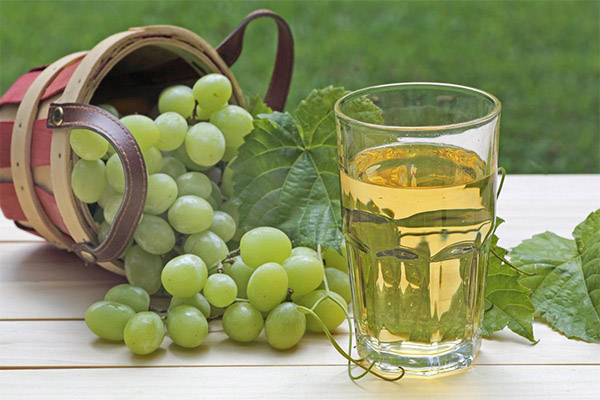
In some cases, grape juice is recommended to use now. For example, with anemia you need to drink half a glass of grape juice 3 times a day. A large amount of iron in the blood contributes to a normal level of blood formation.
With a cold, you need to drink warm grape juice - vitamin C in grapes will help strengthen immunity and help it in the fight against the virus. In this juice, you can add honey or mint to enhance the effect.
The use of grape juice in cosmetology
Due to the ability of grape juice to prevent premature aging, many use it as a cosmetic product. It can play the role of an ordinary facial tonic, nourishing the skin with useful components and improving its general condition. If you rinse your hair with grape juice, you can notice after a while that they become smoother, and the combing procedure is much easier to carry over - it does not cling and does not tangles. The problem of falling out and section is also minimized.
Those who make grape juice at home get the most benefit. Residues that are skipped after filtering the juice can be used for cosmetic purposes.
Body Scrub
Very often in the store you can find scrubs based on grapes and sugar. Such a scrub can have an anti-cellulite effect - it promotes the flow of blood circulation closer to the skin, which has a magical effect. It is very simple to make at home. To do this, you will need sugar and slices of grapes left after grape juice. It is enough to simply mix these components and apply with massaging movements on the steamed skin. Grape seeds will also have a scrubbing effect.
Hair mask with grape juice and burdock oil
Combine burdock oil, grape juice and honey to a thick consistency and apply the mixture to the scalp. The procedure must be repeated at least 2 times a week to get a positive effect - reducing hair loss, strengthening hair roots and improving the general condition of the scalp (less dandruff and fat content).
Hair mask with grape juice and egg
From the 1st cluster of grapes, squeeze the juice and add it to the egg yolk and linseed oil. For density, you can add honey. Rub the mask into the roots of the hair and leave for half an hour (it will be necessary to wrap a head with a towel or put on a hat - the mask works better in the warmth).
Harm and contraindications
Grapes and drinks from it contain a large amount of organic acids, so you can not drink juice for people with peptic ulcer of the gastrointestinal tract and gastritis. The ability to speed up metabolism can also play a bad joke with those who suffer from diarrhea.
The same acids can contribute to tooth decay if they already have caries. Therefore, if there is a desire to switch to food with a high content of grape products, you need to visit the dentist to fix the problem.
You can’t drink juice with added sugar for diabetics and people who are prone to accumulate excess weight, so you should abandon the packaged juice and do only homemade, without a sweetener.
How to choose and store grape juice
When choosing grape juice in a store, carefully pay attention to the composition and shelf life. It is better to choose a juice that contains no food additives and sugar.The extended shelf life indicates that this is not a natural product.
It is better to give preference to homemade juice - its benefits in this case will be undeniable. Its preparation is simple and does not require much time, and if you close it in banks, then it may well please you in the winter. Also, prepared juice from grapes can be frozen - in this form it will remain for a year. With these storage methods, you will receive grape juice at any time of the year, and you won’t have to run to the store for concentrated bagged juice.
How to make grape juice
Making juice is a great way to increase the shelf life of berries and fruits, especially if you have your own land and they grow in unlimited quantities. Grape juice is made very simple. You must choose a grape variety depending on your preference - the juice can turn out to be sweet or sour, maroon, pink or champagne.
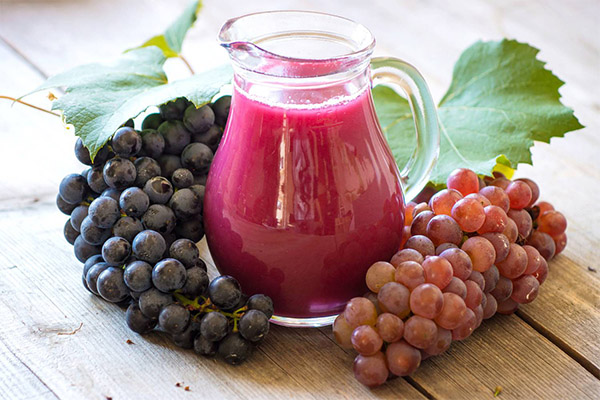
For cooking, we need such components:
- Grapes
- Drinking water.
Sugar is added to taste, and its volume depends on the selected variety - with sufficient sweetness of the grapes, you can not add it.
Stages of preparation:
- Remove the stems and thoroughly rinse the berries in a sink under cold water, then place them in a saucepan and fill with water so that the liquid barely covers the grapes.
- Place the pan on the stove, on a slow fire. After 5 minutes, crush the grapes with a press (for example, for mashed potatoes) - since the peel of the berries is quite dense, it is necessary to violate its integrity for better allocation of juice. After chopping, cook the grapes for another 15 minutes.
- After cooling, strain the finished juice through cheesecloth - so you remove excess sediment. Thanks to the first clarification, juice with pulp is obtained. To get a drink without pulp, the juice needs to settle for 12-24 hours - the remaining precipitate will settle, and it will be easier to remove it the next time you pass through a gauze / sieve.
- If you want to twist such a natural drink and leave it for the winter, boil the peeled juice again and pour it hot in sterilized jars. Close their lids and leave at room temperature until they cool completely. Such grape juice can be stored for up to a year.
How to make wine from grape juice
For the preparation of wine at home, no special equipment is required, but patience will need to be stocked up.
To make wine, you need to prepare the following components:
- Grape juice - 4 liters.
- Granulated sugar - 0.5 kg.
- Wine yeast - one sachet is enough.
- 5 liter glass container.
Stages of preparation:
- Juice does not need to be stored in the refrigerator, it should be at room temperature. Pour 0.5 liters into a 5-liter bottle, add 1 teaspoon of wine yeast to it and close the bottle with gauze (some homemade wine makers use a rubber glove with a small hole for this). Shake the bottle to thoroughly distribute the yeast. Leave the juice bottle in a place protected from sunlight, but it must be warm enough for the yeast to work properly (room temperature will be sufficient).
- After a few days, the liquid in the bottle will begin to bubble - this is a sure sign that the yeast is working. If you decide to use a rubber glove - it will inflate. Add 1.5 liters of grape juice to the bottle and put the glove on the bottle again. Do not forget that in it you need to make a small hole for the release of carbon dioxide, which is released during fermentation.
- Yeast, like any other living organism, needs food. It is best to use sugar, so you need to make syrup. In a 2-liter bottle, add 0.5 kg of sugar and pour 1 liter of warm water.Shake the bottle until sugar is completely dissolved and leave it for the future - you will need syrup in the next step.
- After 5 days, add another 1 liter of juice and all the sugar syrup that was prepared in advance to the 5-liter bottle. Shake the bottle well for better distribution of the syrup and forget about the wine again for a few days (do not forget to put a rubber glove on the bottle).
- After another 5 days, you will notice that there are much fewer bubbles on the surface of the liquid, and the glove is already not so inflated - this means that fermentation is gradually ending. Add the remaining liter of grape juice, close the bottle with a glove and leave the wine for another 2 weeks.
- When the glove finally deflates and the number of bubbles decreases (to almost one bubble), place the bottle in the refrigerator for 3 days. Under such conditions, the yeast will settle to the bottom, and the fermentation process will end. After 3 days, carefully pour the finished wine into bottles, being careful not to spill the sediment at the bottom.
Can I drink juice from the vine
Grapevine juice in folk medicine is also called apiary and is used to treat many diseases. Therefore, the use of such raw materials for the preparation of juices is not contraindicated, but rather can help your body cope with some ailments.
It is better to collect the apiary in the middle of spring - this is when the grapes begin to wake up after hibernation and all the nutrients are planted in the vine to help it grow foliage. The collection of juice from the vine is very similar to the collection of birch - you cut a twig along an oblique line, send it to a container prepared in advance and leave it that way for a day. With the right cut from a small vine, only a centimeter long, you can collect up to 3 liters of juice. Based on such a drink, you can make wine in the same way as from grapes.
The most popular medical recipe based on apiary is considered juice with the addition of vegetable oil. The proportions of this drink are 4: 1 (vine juice and olive oil, respectively), but its shelf life is very short.
Both juice and wine will help get rid of some diseases. For example, to remove kidney stones, improve metabolism and even vision, and also contribute to the treatment of diseases of the circulatory system. There are a lot of organic acids in the apiary - much more in spring than in later berries. The same applies to macro-, microelements - it practically contains the entire periodic table.
Pasoka is also used for cosmetic purposes. Juice vines can wash your face and rinse your hair. For hair, you can make a mask based on burdock oil and apiary - oil will eliminate the problem of loss, and the juice will moisturize and revitalize curls.
How to color eggs with grape juice
It’s easy to color the eggs with juice, and as a result you can get a very saturated lavender matte color. As with any staining of eggs with natural ingredients, the dye juice should be 100%, so it is undesirable to choose a store one for this, as the manufacturer is not always conscientious.
After you squeeze the juice from the grapes, put in it the desired number of eggs for several hours. You can also use the method of co-cooking juice and eggs, but in this case it is necessary to strictly monitor the integrity and degree of preparedness of the testicles.
Interesting facts about grapes
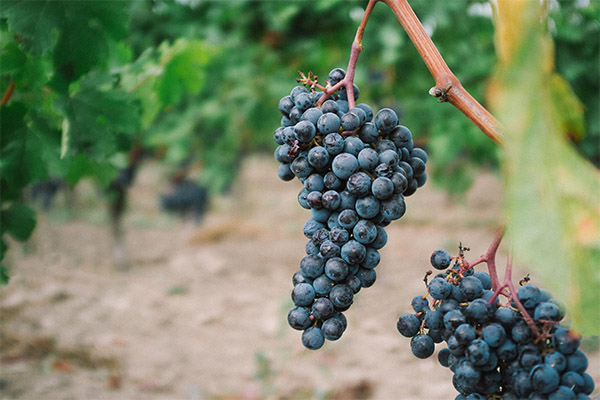
- The largest producer of grapes is far from Italy, and China - almost 10 million tons per year.
- Grapes act like poison on animals - it can cause vomiting, upset stomach and cramps.
- Grape drinks were used in ancient Egypt, as evidenced by Egyptian writings.
- The grape seed contains oils that are used in the cosmetics industry for the manufacture of skin care products.
- Some people in Japan peel grapes from peels and seeds, believing that they are bitter, and the skin cannot be washed from dirt.
- There is a grape variety whose taste resembles cotton candy.
- In Slovenia, there is a vineyard that is more than 500 years old - it survived the First and Second World Wars, the battles of the time of Napoleon.
- From young leaves of grapes make a dish similar to cabbage rolls. It is called dolma.
- The first winery appeared 8000 years ago in Georgia.
- Grapes are mentioned in the Bible - it was grown by Noah.
«Important: all information on the site is provided exclusively in fact-finding purposes. Before applying any recommendations, consult with a profile specialist. Neither the editors nor the authors are liable for any possible harm caused materials. "

